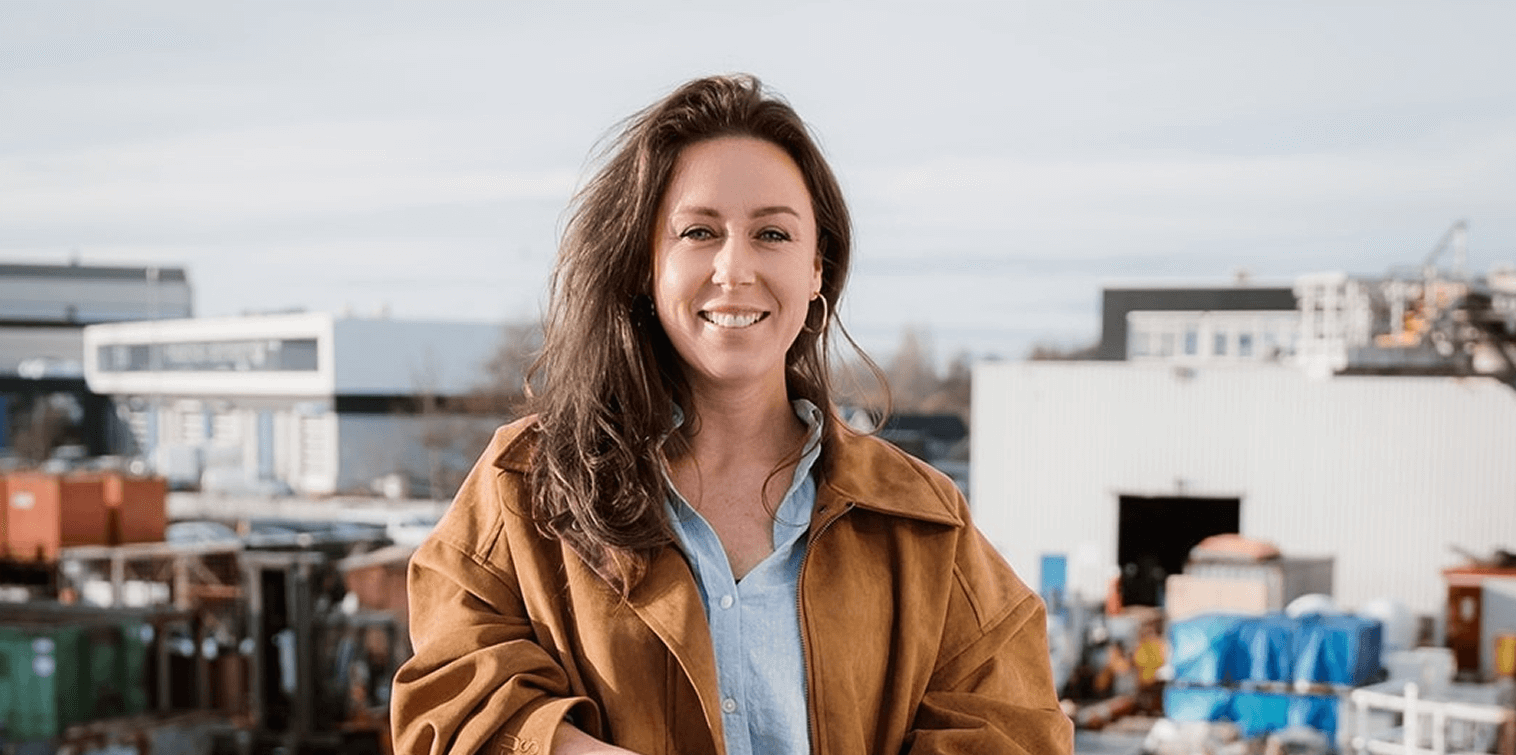Beyond the engine: testing methanol for cleaner shipping
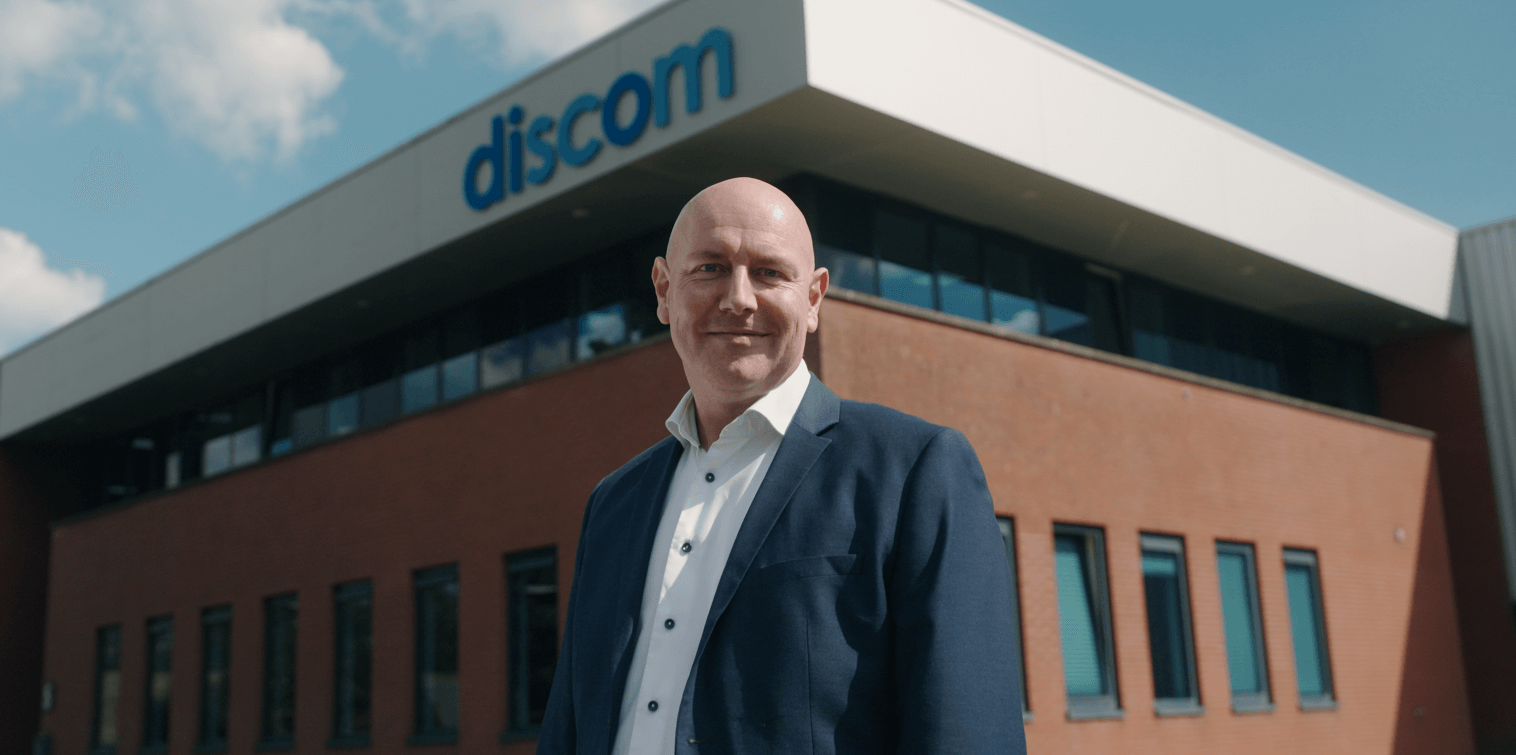
That is where Discom, based in Alblasserdam, comes in. The company designs and manufactures advanced exhaust gas systems for inland and seagoing vessels, offshore applications and industrial engines. From silencers to filters and water-cooled exhausts, Discom builds exhaust systems capable of reducing emissions, lowering noise and making engines more sustainable – even retrofitting older engines with current emission limitation systems so that they meet modern standards.
“In the Netherlands alone, around 150 new inland vessels are built every year, each with three or four engines on board,” says Werner van Well, Discom’s Account Manager for the Benelux. “Our job is to make sure that the user of those engines is able to comply with ever-stricter regulations. With new fuels like methanol coming in, we need to find out what happens inside the exhaust system – and how we can make it cleaner, safer and more efficient.”
What is MENENS?
Discom is one of more than twenty partners in the MENENS project: ‘Methanol as an Energy Step Towards Emission-free Dutch Shipping’. This consortium, part of the Dutch Maritime Masterplan, is researching the practical use of methanol as a marine fuel.
“Methanol is liquid at room temperature, easier to handle compared to hydrogen and can be produced from renewable sources. That makes it a promising alternative fuel. But its effects on engines and emissions are not yet fully understood,” says Werner.
“We are testing what methanol actually does in and to the exhaust system. Does it produce an unforeseen by-product? For instance, what are the actual real-life emissions on formaldehyde? Can you use the heat in the exhaust for other purposes? These are the questions we are investigating in long-duration tests.”
At the Dutch Defence test facility in Den Helder, Discom is supplying an emission limitation system and an oxidation catalyst system for the Fugro Galaxy, a research vessel with a Mitsubishi engine supplied by Olthoff Marine. Together with other partners such as TNO, MARIN, TU Delft, NIM, Bureau Veritas and several shipyards, the Discom trials are helping to validate methanol as a safe, certifiable and scalable fuel.
Why it matters
The MENENS project is about more than just technology. It is about shaping the future of the Dutch maritime sector. “Standing still is going backwards,” says Werner. “Propulsion systems are changing, and we have to change with them. That means collaborating with partners across the chain, such as engine suppliers, shipyards, legislators and research institutes.”
“By sharing knowledge across twenty partners, the consortium tackles everything from welding standards to emission levels and from energy losses to design forces on ships. These are not just details,” Werner emphasizes. “They are the building blocks of a cleaner future.”
Human capital: the people behind the systems
For Discom, innovation is as much about people as it is about technology. “It’s not only about money, but also about what you deliver and how you deliver your products and services. Every project requires different types of skilled workers – engineers who design the systems, welders and fabricators who build them, technicians who install and maintain them, and more. One cannot do without the other and I would say that goes for most of the maritime industry.”
The shortage of skilled workers is a growing concern in the Netherlands and for Discom as well: “There are too small numbers of people who can really work with their hands, especially in steel and composites. Schools could and should promote these professions a bit more. There is still so much work that you cannot automate or digitalise. Making silencers, for example, is still highly manual work and not yet fit for robotisation. In my opinion, we need to attract and train much more people in these crafts. The demand is there!”
For Discom, human capital is also about agility. Inland shipping clients often need fast delivery times, which requires stock management, ERP systems and staff who can switch quickly between engineering, production and customer service. “The human factor is crucial in every part of the process,” Werner concludes.
Why Rotterdam and its wider region?
The Rotterdam region is the perfect place for Discom to operate and innovate. “If I look at inland shipping, I’d say 80% of the market is here in the region,” Werner explains. “Also, most of our suppliers and partners are within an 80-kilometre radius. That’s incredibly practical. You’re close to the action, you know each other, you meet each other. If something doesn’t work, there’s always someone else nearby who can help. And we can test directly on the water.”
This proximity, combined with the region’s tradition of shipbuilding and technical know-how, creates an ecosystem where collaboration is natural. For international partners, it offers a unique opportunity to be part of a tightly connected cluster driving the maritime energy transition.
The road ahead
For Discom, the energy transition is not a distant vision – it is daily reality. From diesel and LNG to biogas and methanol, every fuel presents new challenges for exhaust treatment. The company’s systems are designed to adapt, ensuring engines remain clean, efficient and compliant. “Our aim is that OEM’s can rest assured that their own clients can use the engines they operate in the way they were meant to operate and as reliable as possible. We will take care of what comes after the engine.”
Werner concludes: “The real issue is not whether new fuels will come; they are already here. The question is how we can handle and use them – technically, safely and sustainable. That’s why projects like MENENS are so important. They bring people and companies together to make the energy transition reality in practice.”
Download our guide
Learn from entrepreneurs who have already grown their business in the Rotterdam region. Download the free PDF for practical advice, valuable contacts and local insights. Ready to take the next step? Discover how Rotterdam can help your business grow.
Shaping sustainable shipping: innovation, people and partnerships in Rotterdam
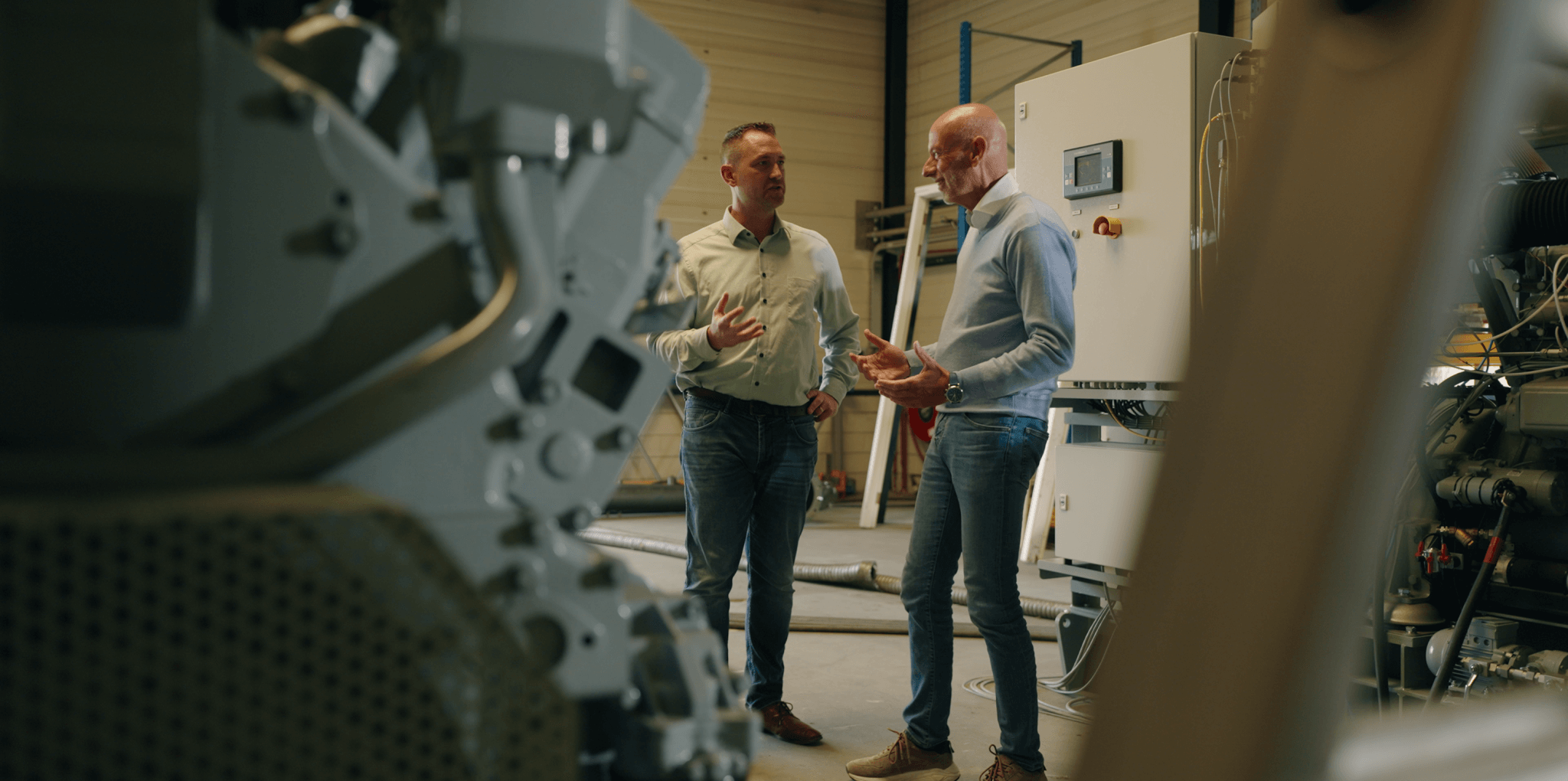

Charting her own course: Heleen Kornet on leadership, legacy and navigating a male dominated maritime world
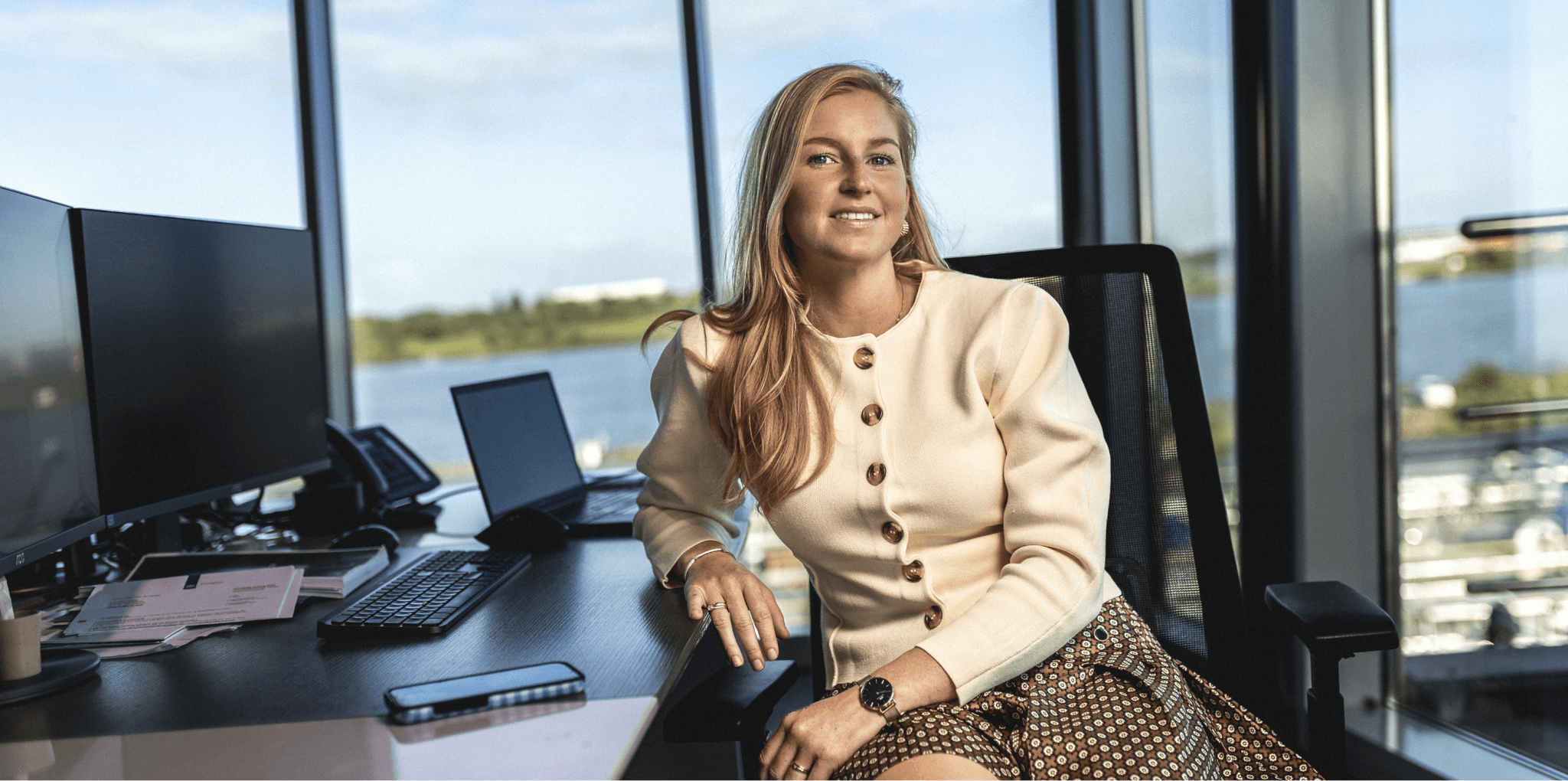

Innovating inland shipping: how Concordia Damen strengthens the maritime ecosystem from Werkendam to Rotterdam
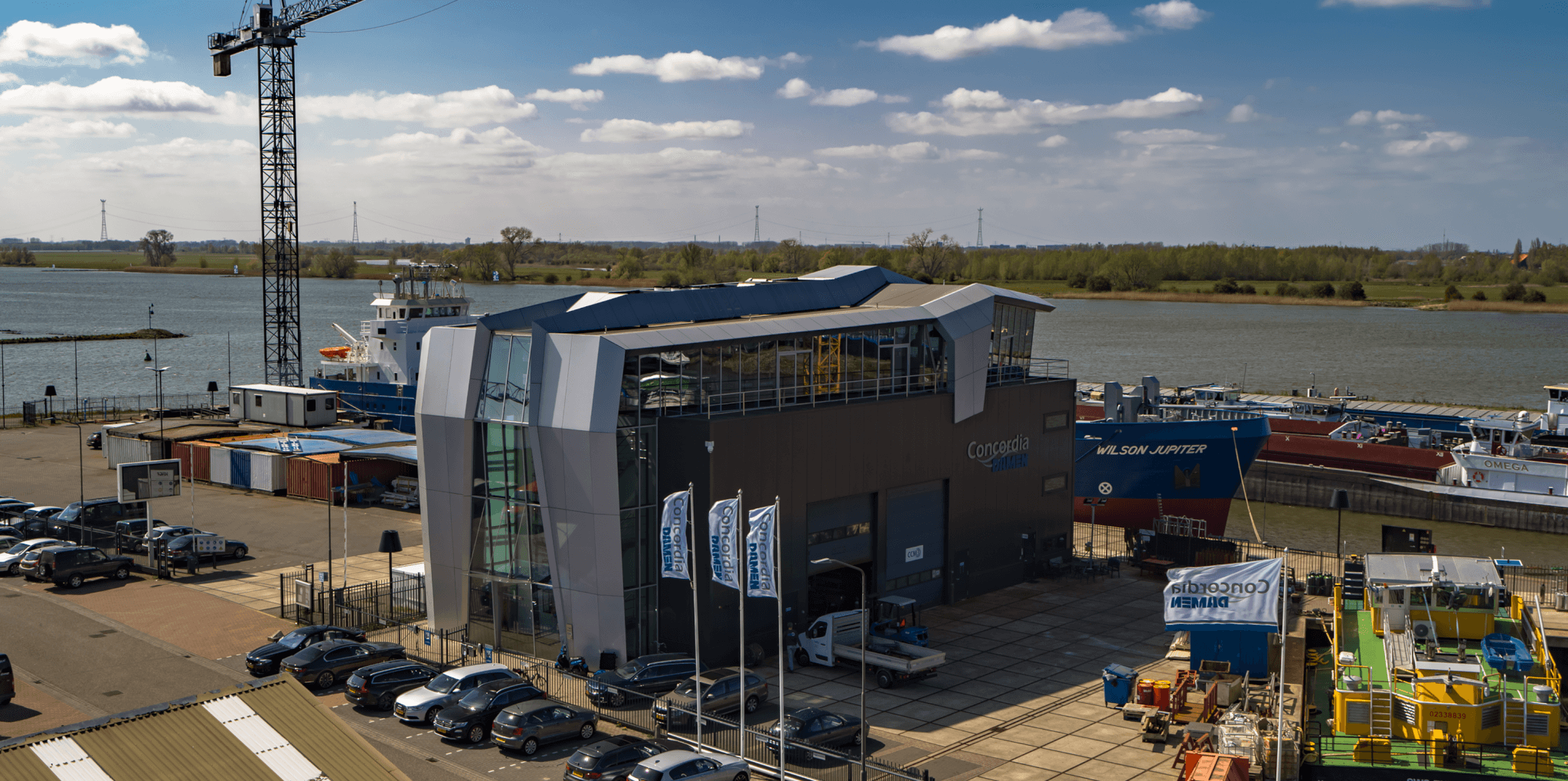

Building smart, specialised vessels: how Holland Shipyards Group turns customer questions into practical innovation
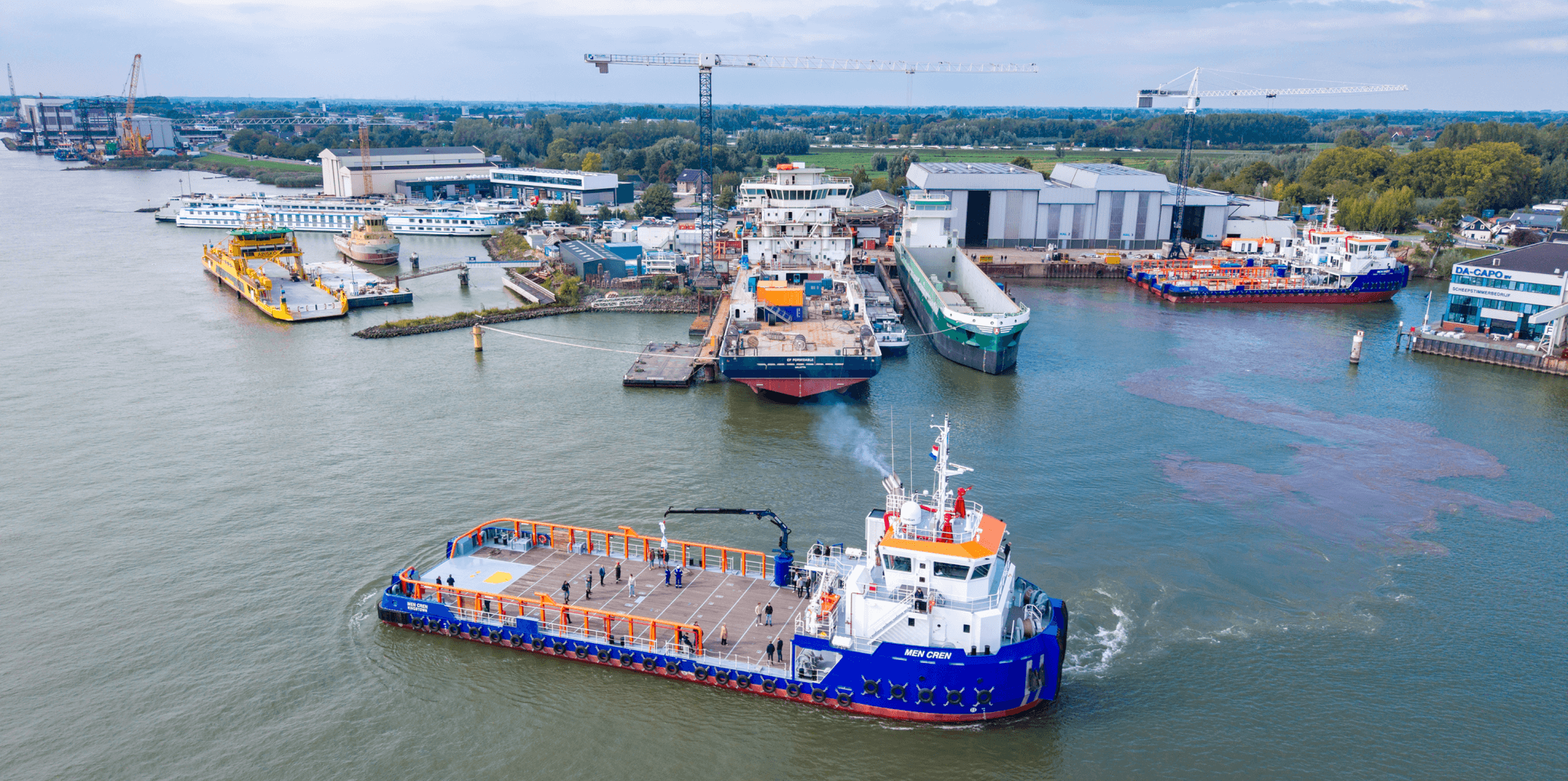

Working with trust and curiosity: Shanna van Berchum on building a career in the maritime industry
